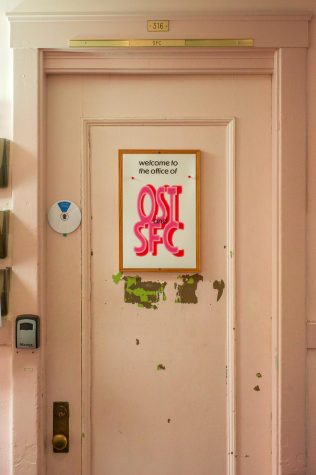College Should Pay Student Workers Higher Wages

Oberlin College asserts on its website that it has a “commitment to inclusion and academic excellence,” of which its financial aid policies are supposedly a reflection. These policies include student loans and money earned through student employment, in addition to grants. They are intended to make Oberlin more financially accessible by allowing students who are unable to meet Oberlin’s sky-high tuition cost or are otherwise in need of financial support to attend the College. Yet while the College markets its financial aid and other employment opportunities as the realization of its commitment to its students, inclusive ideals, and promises to meet “100 percent of demonstrated need for every student,” the low wages paid to student workers contradict that mission.
A quick scan of the current job postings on the student employment website reveals that most offerings hover either at minimum wage or slightly above it — presumably, the many that are listed at or below $10 an hour have not been updated to account for the recent statewide raise to $10.10. Many jobs, as noted previously by the Review, have high standards for applicant consideration and require either highly skilled or highly difficult labor despite their menial wages, perhaps giving insight into why they remain unfilled. The lofty required qualifications support arguments for greater employee compensation.
Regardless of what these jobs entail, an argument can still be made for better pay. Coupled with the rising costs of tuition and student expenses and the limited hours students can afford to work given their course schedules, the pay earned for the part-time hours students work is insufficient. It is reasonable to expect that such an outwardly progressive employer as Oberlin College would subscribe to the higher baseline standard that all are deserving of liveable compensation for their labor.
The excessive work hours that many students must take on to compensate for their low hourly wages interfere with their academic lives and success, which directly contradicts the standard of academic excellence that Oberlin promotes. By creating such a barrier for these student workers, the College heightens the disparity between them and their higher-income peers who don’t need to work, even as its employment policies purportedly facilitate inclusivity on campus.
There is an obvious fix for this, and the effect of Ohio’s latest minimum wage raise on student workers offers a case study for the College to raise its pay further. Past Review coverage of the raise found, in interviews with two students, that it was either insignificant or allowed for the possibility of fewer hours for the same fiscal result. In order to be universally and significantly impactful, a pay hike would need to be far greater than just 80 cents.
I will concede that this policy is not without complications. The extra wages will have to come from somewhere, and past measures by the College to account for wage increases have had adverse effects. Already, the Student Finance Committee, an organization that manages payment for select student positions from the Student Activities Fund, has instituted a freeze in creating new paid positions for student organizations for this semester.
Maintaining currently offered student positions and raising their pay will require a shift in the College’s budget to expand the allocation for student employment. This expansion will, ideally, encompass the pay for those positions that are no longer affordable to the Student Finance Committee. It should not come from fees charged to students, the very cost of which their employment is intended to offset. It will require the detraction of funds from other budgetary areas, some of which are surely overblown given the College’s enduringly large endowment and the comparatively negligible portion of it devoted to students’ — and faculty and staff — wages. Whatever sacrifice such a shift might entail is an opportunity to reflect the College’s expressed prioritization of its students’ well being. A true commitment requires going above the bare minimum.



